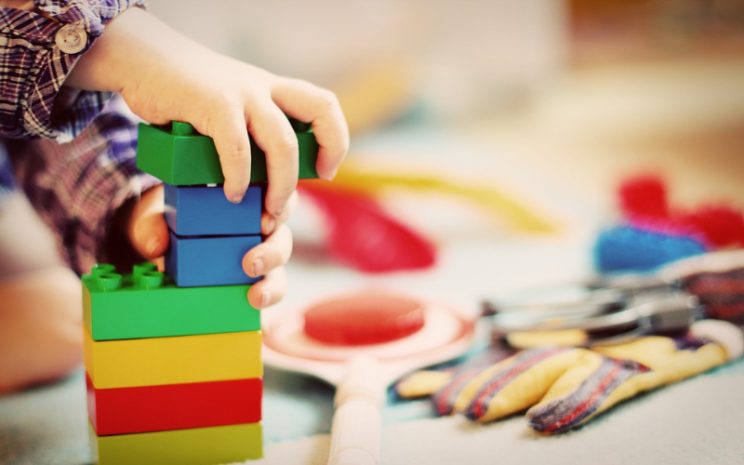Is There a Difference in Play Therapy and Special Instruction?
When it comes to supporting a child’s development, both play therapy and special instruction are common approaches. But is there a difference in how these methods work? Understanding the unique benefits of each can help parents and educators choose the right path for their child. In this article, we explore the key distinctions between play therapy and special instruction—and how each can impact a child’s growth.
TL;DR:
Play therapy and special instruction differ in focus and method: play therapy uses child-led play to address emotional, behavioral, and social issues, while special instruction provides structured, individualized strategies to support cognitive, academic, and developmental growth. Play therapy emphasizes emotional expression, trauma processing, and social skill development in a therapeutic setting, whereas special instruction targets educational goals, skill acquisition, and milestone support through tailored teaching in collaboration with families and educators. Often, combining both approaches offers comprehensive support for a child’s overall development.
Schedule special instruction in Brooklyn now!

What is Play Therapy and How Does It Differ from Special Instruction?
The primary difference lies in their focus: play therapy addresses emotional and behavioral issues through play, while special instruction emphasizes developmental learning through caregiver-guided strategies and structured activities.
Play Therapy
- Definition: A therapeutic method that uses play to help children express emotions, thoughts, and experiences.
- Child-Centered: The child leads the session through play, guided by their emotional needs.
- Therapeutic Goals: Focused on emotional processing, coping with trauma, and improving social skills.
- Tools Used: Toys, games, and creative activities to encourage self-expression in a safe environment.
- Relationship Focus: Strong therapist-child bond is crucial for building trust and facilitating communication.
Special Instruction
- Definition: Tailored educational strategies designed to support children with disabilities or developmental delays.
- Individualized Education: Based on Individualized Education Programs (IEPs) or individualized family service plans (IFSPs) to meet specific educational goals.
- Educational Focus: Aims to enhance cognitive, academic, and life skills through structured instruction.
- Tools Used: Adapted materials, assistive technologies, and specialized teaching methods to suit each child’s learning needs.
- Collaborative Approach: Involves close coordination with educators, therapists, and families to track progress and ensure holistic development.
Distinguishing Features of Play Therapy and Special Instruction
PT and SI are two unique approaches that serve different purposes in helping children develop emotionally and cognitively. While Play Therapy addresses emotional and behavioral development, Special Instruction targets cognitive and academic growth, each complementing the child’s overall well-being.
| Feature | Play Therapy | Special Instruction |
| Purpose | Emotional and psychological healing | Academic and developmental support |
| Method | Play based activities | Structured teaching and curriculum adaptation |
| Focus | Child’s emotional expression and processing | Child’s learning needs and educational goals |
| Setting | Therapeutic environment | Educational setting (classroom, home, etc.) |
| Relationship | Therapist-child relationship | Teacher-student relationship |
When to Choose Play Therapy Over Special Instruction
Choosing between play therapy and special instruction for children with developmental delays or behavioral issues depends on the child’s specific challenges and the goals of intervention.
Often, combining both approaches can provide a more comprehensive support system. Collaboration among parents, therapists, and educators is essential to making the best choice for the child’s development.
When to Choose Play Therapy:
- Emotional or Behavioral Issues: If a child is experiencing emotional distress, anxiety, or behavioral challenges, play therapy offers a safe space to express and explore emotions.
- Developmental Delays: For children with limited verbal communication, play therapy can be an effective way for them to express themselves through play.
- Trauma History: Play therapy is ideal for children processing trauma or loss, helping them navigate their experiences.
- Social Skills Development: Children struggling with social interactions can benefit from play therapy, which provides opportunities to practice and improve these skills.
When to Choose Special Instruction:
- Learning Delays: For academic and cognitive delays, special instruction focuses on direct educational support.
- Skill Acquisition Focus: Special instruction is helpful for developing specific skills like reading, math, and fine motor skills.
- IEP Support: Children eligible for special education services may require special instruction to meet their Individualized Education Program (IEP) goals.
- Developmental Milestones: Special instruction supports children who need targeted interventions to meet developmental milestones in speech, motor, or cognitive skills.
Key Takeaways
- Play Therapy focuses on emotional and behavioral support, using child-led play to help children express feelings, cope with trauma, and improve social skills. It relies on creative tools like toys and games and emphasizes a strong therapist-child relationship.
- Special Instruction provides structured, individualized educational strategies for children with disabilities or developmental delays. It supports cognitive, academic, and life skills through tailored teaching methods, adapted materials, and collaboration with families and educators.
- Key Differences: Play therapy centers on emotional healing in a therapeutic environment, while special instruction targets academic and developmental growth in educational settings.
- When to Choose Play Therapy: Best for addressing emotional distress, trauma, limited verbal communication, or social skill challenges.
- When to Choose Special Instruction: Ideal for learning delays, skill-building in academics or motor skills, IEP support, and achieving developmental milestones.
- Combined Approach: Many children benefit from both methods together, offering a more comprehensive developmental support system.
Sources.
Landreth, G. L. (2012). Play therapy: The art of the relationship. Routledge.
Childress, D. C. (2004). Special instruction and natural environments: Best practices in early intervention. Infants & Young Children, 17(2), 162-170.
